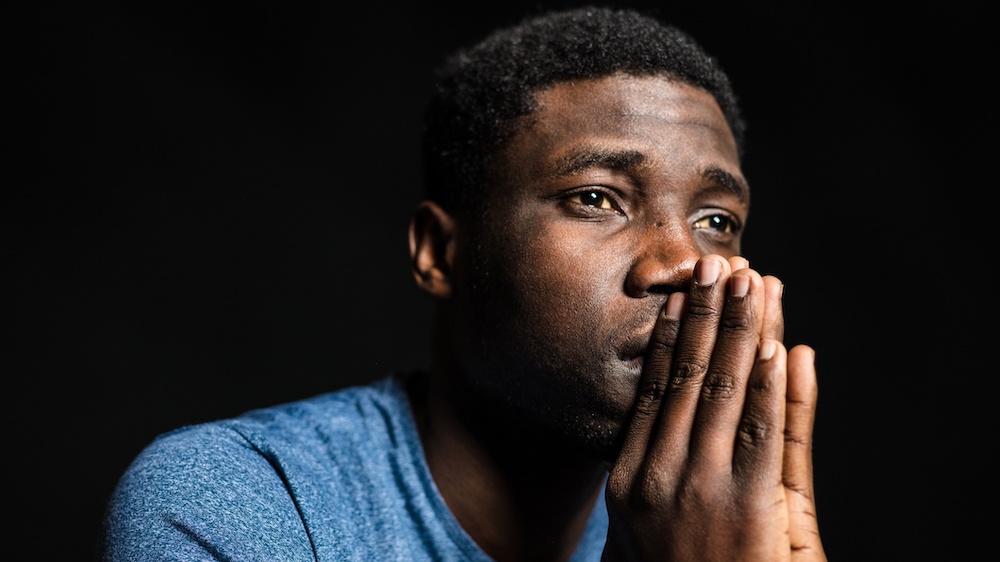If you’re interested in sharing your opinion on any cultural, political or personal topic, create an account here and check out our how-to post to learn more.
____
Trauma is a never-ending spiral of emotional blockage and an emotional wound. If you do not work towards healing, experiences, phrases or environments can rip into that emotional wound causing more pain. Altogether, 61% of men experience at least one traumatic experience, 51% of women experience at least one traumatic experience and 90% of people in public behavioral health care have experienced trauma. Trauma could come from experiencing a car crash or death in the family. If you’re Black, your trauma could come from societal issues like poverty or historical trauma such as racism.
Black people make up over 13% of the United States, and 16% of Black people have a mental illness. Because of historical trauma, Black people suffer complex trauma and should be encouraged to see a therapist.
Black People’s Trauma Dates Back Historically
Because of race and creed, trauma has been inflicted on certain parties. For Black people, trauma has been haunting us for centuries. Destruction of cultural practices, genocide, forced relocation and slavery are a few traumatic experiences that cause Black people emotional blockage. A white man named Graham Danzar wrote an article studying trauma in the Black community entitled, "African Americans’ Historical Trauma: Manifestation In and Outside of Therapy." Because he lived in the community with low-income Black people, he experienced how Black people were trying to heal from pre-existing trauma. In his 2012 article, Danzar shared, “I also reflected on how many people in my old neighborhood seemed to be constantly trying to heal from pre-existing traumatic wounds or responding preemptively to new threats."
The pre-existing trauma that Danzar is referring to is Black people’s historical trauma. Historical trauma is intergenerational trauma that targets specific groups, like communities that experienced slavery and the holocaust. Because of this intergenerational trauma, even the family members that did not experience these horrible experiences first hand feel the affects generations later.
Black People Have Endured A Painful Legacy Of Betrayal, Pain, And Abuse
Black people have been stolen from their native homes and enslaved. Black people have been a product of chattel slavery, sold, overworked and a denial of human rights. Our Black women have been raped, abused and pushed into forced breeding. Even when we were considered free through the 13th Amendment, Black people were let out of a cage and pushed into another cage. We went from being owned to Jim Crowism. They introduced sharecropping, which Psychotherapist Brandon Jones explains as an attempt to bring back a different form of slavery (see page 19 of Danzar's article referenced above).
Though Black people have come a long way, we are still fighting against discrimination, cultural robberies, institutionalized generation and the list goes on. We are broken down from our neighborhoods to our families. We are shoved into ghetto and welfare, and then penalized harshly for trying to emerge from the hate. In 1960, 22% of African American children lived with single parents, according to a U.S. Census Bureau report. In 1968, it rose to 31.4%, and by 2011, doubled to 64% percent. The current report shows this number has tripled to 72%.
Black people are not and have never been accepted into the American Dream. Because of this, there are high levels of children being thrown into the foster care system, high levels of incarceration, high levels of unemployment and high levels of mental illness in the Black community.
Black People Need To Go To Therapy
Trauma is passed down generationally because of historical trauma. I encourage my people to look into therapy. According to Daily Texan, one-quarter of African-Americans seek help compared to 40% of whites. Religion, lack of information and distrust are some reasons why Black people choose to stay away from therapy.
Black people cannot pray the trauma away, nor can we rely solely on the church to cure us. “Religion is used as a system to give strength and support, which often turns people away from seeking psychiatric help. There are some Black people that will use spirituality and faith in God as a method to heal their mental and emotional torment, despite medical and therapeutic help being necessary for their condition. Faith can have little to no effect on the health of our mind, so it should not be our only solution,” explains Daily Texan.
We need professional help too. Lack of information pushes Black people away from dealing with their traumas, too. The subject is not something we discuss freely and it is often looked at as a sign of weakness, often forcing us to deal with our issues alone. Adding on to relying on religion and lacking information, African Americans are negatively affected by discrimination in the health care system.
Black people who have a mental illness should be encouraged to seek professional medical help because the suffering will not stop and will continue to become a generational issue if we do not take steps to cure ourselves now.
